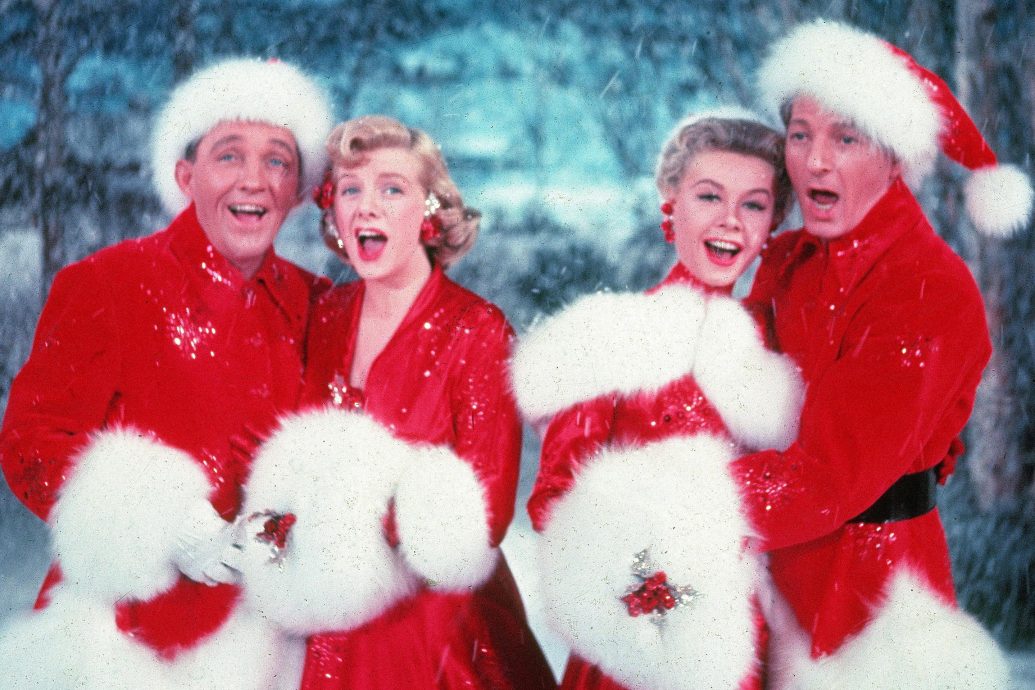The Trump Administration is moving to ensure new taxes face a cost-benefit analysis, and this offers a new way to control the administrative state.
When Bing Saved Christmas
The first ten minutes of the iconic 1954 film White Christmas resonate deeply in viewers with its themes of home, peace, and family. The scene features American soldiers in the European theater during World War II, removed from the front lines and trying to take in Christmas. Captain Bob Wallace (Bing Crosby) treats them to a beautiful version of Irving Berlin’s “White Christmas.” As the old crooner invokes home and the thoughts of surely better Christmases, the camera moves through the faces of battle-hardened veterans stirred by the song’s images. Audiences in 1954 would obviously have known well the anguish and fatigue the soldiers carry, either having personally experienced it or having been working on the homefront with loved ones in combat a continent away. And before the war they knew the lean Christmases of the Great Depression. Americans in 1954 amidst relative abundance could afford to reconsider the memories of this period and recall their heroes and their virtues that had pulled them through those catastrophic years. And abundance characterizes much of the backdrop of White Christmas, marking the ambition, verve, and spirit that pervades the film’s characters. The energy, commerce, travel, food, and alcohol suggest an America that is humming, brimming with optimism and excitement.
After singing White Christmas and sending off Major General Waverly (Dean Jagger) to the rear with a “slam-bang finish,” Wallace is almost killed by a surprise artillery bombardment. His life is saved by Private First Class Phil Davis (Danny Kaye), who later importunes Wallace with a business proposition while both are recovering in the infirmary. Davis wants to team with Wallace in a musical duo, and he isn’t above playing on his heroic deed, which almost cost him the use of his arm, to get Wallace’s consent. Wallace, we learn, was a major Broadway performer before the war. And he still entered the Army, serving in combat. But that was expected. (See Ted Williams, the Triple Crown-winning Boston slugger, who left baseball in 1942 to serve in the war effort and would later fly combat missions in the Korean War.)
Wallace and Davis quickly became national news, headlining theaters across the country. In spite of the characters’ fame, a certain solidarity marks the film, one that is upheld by great acts of love. After leaving the Army, General Waverly purchased the Columbia Inn in Pinetree, Vermont, plowing his savings and pension in the venture. But things have come a cropper for Waverly. Business hasn’t been robust and the winter season has been bereft of snow. Will Waverly fail miserably in this last mission of his life?
Wallace and Davis find themselves on the path to Pinetree, led by another musical duo, the Haynes Sisters, who are blonde, gorgeous, and delighted to be accompanied by Wallace and Davis to Vermont for the holidays. The Haynes Sisters are booked to perform at Columbia Inn. Wallace and Davis have no clue that the Inn is owned by Waverly. And for that matter, Wallace had no intention of going to Vermont for the holidays. He was planning on working in New York. Davis, though, is captivated by Judy Haynes (Vera-Ellen). After watching the Haynes Sisters perform in Florida, Wallace is soon cajoled by Davis into going with “the girls” to Vermont. Staring at Betty Haynes (Rosemary Clooney) across the table, Wallace realizes Vermont “may not be so bad this time of year. All that snow.”
Certain woke types would likely decry the vestigial sexism in the story here. As if the Haynes ladies needed the two men to protect them, travel with them, indeed, love them. And if we enter into that worldview, then we too find ourselves bemoaning yet another instance of sexist vice masquerading as noble virtue. Certain aspects of the film heighten this characterization. The Haynes Sisters perform “Lord, help the mister” a duo about their love for one another as sisters, but their welcome invitation for “a man who comes between me and my sister.” Later, a seemingly older and wiser Wallace implores a harried and confused Betty to count her blessings when she’s worried, an instruction that she gratefully receives. She remarks to Wallace that her knight sits firmly atop his horse, a reference to her growing admiration and affection for him. And we clutch our egalitarian pearls, saying to ourselves, “surely these women know that they don’t need a man to be happy.”
But the truth the film wants to convey is more compelling and lovelier than any hypersensitive gender screed. The blonde bombshells are independent and successful. As a performing act, they are ambitious and seemingly ascendant. Rather than rest over the holidays, they’ll be singing for their supper in frigid Vermont. They contact the “boffo” Wallace and Davis to review their act for professional reasons of advancement, not for romantic reasons. And that’s where the story turns, or as we non-woke types might say, boy meets girl. There is a pairing off as Betty and Judy recognize in the wit, decency, and professional success of Wallace and Davis, two men worthy of their attention. And it is reciprocated in charming and goofy ways by the men. Wallace the virtuoso pianist struggles to find the right key with Betty next to him. With Wallace, we soon learn that his prudence and wisdom will save Christmas, not only for the Haynes Sisters, but for General Waverly, the Columbia Inn, and the old Army unit. It’s Bing’s show, baby!
As mentioned, Waverly’s Columbia Inn is failing. Wallace and Davis are stunned to see their former General doing KP as they enter the Inn. Waverly responds, “It’s worse than that. I own this Inn.” The Haynes Sisters won’t even have an audience for their act. Rather than leave, Waverly insists they stay. He refuses to surrender. And so does Wallace who quickly moves to action and invites his entire cast and show up from Florida to rehearse and perform at the Inn, giving the General guests and commerce to save the Inn. But it goes deeper than that for Waverly.
He recently applied to rejoin the Army and pursue a training command, but the Army denies Waverly’s request in a letter that Wallace reads to Waverly because of his poor eyesight. Wallace takes note of the General’s searing disappointment at the news that he is permanently retired. This time Wallace renders a final act of kindness to General Waverly. He calls on the great entertainer Ed Harrison and his Ed Harrison Show to provide the platform for him to make his pitch to all former members of the unit to descend upon Columbia Inn on Christmas Eve. Harrison sits atop American entertainment but makes his show instantly available to Wallace to launch the Operation Christmas Eve effort. Harrison had also served under Waverly and fondly remembers him.
Betty, however, is given false information by the busybody innkeeper and believes Wallace aims to bring the Harrison Show to the Inn and plug Wallace and Davis at Waverly’s expense. She harshly rebukes Wallace and flees to New York. Betty only realizes the folly of her rejection when she sees Wallace on the Harrison Show actually appealing to the old soldiers to come to the Inn on Christmas Eve. He did what he said he would do. Wallace is the knight she always wanted and when Betty returns to the Inn, she tells him so.
The end is touching. General Waverly, appearing in full dress uniform, reviews the troops that have assembled at his Inn. He is profoundly moved and the ring of gratitude closes from Wallace and Davis to the General who is overwhelmed that his former command regards him so highly. He can rest in the knowledge that he did his part with the time given him. We are left with rich imagery of country, family, friends, and love closing the film. White Christmas emphatically shows us that apart from relationships and their obligations and commitments, we don’t amount to very much. And if we return to the beginning, with the soldiers in the field lamenting their former Christmases amidst war, we know exactly their sadness and their hope.



